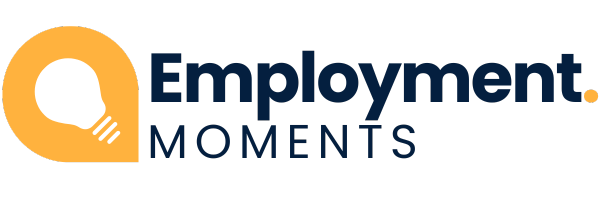Starting your first job is a big step. Learning about networking is key to building your career. It’s about making friends with people in your field. This helps you find new job chances.
Many jobs come from who you know, not just your resume. A strong network can make you more visible in your field. It also brings you mentors and resources that can help you grow.
Understanding the Importance of Networking
Networking is key to career success. It’s a powerful tool for growth and building professional connections. People use it to share ideas, get advice, and find new opportunities. About 70-80% of job seekers find work through their networks, not just job ads.
Networking as a Career Catalyst
A strong network can greatly benefit your career. It connects you with industry experts, expanding your knowledge and access to jobs. Networking opens doors to roles that aren’t advertised. It also speeds up your career by offering mentorship and collaboration.
Building a Strong Professional Network
Building a solid network takes effort and variety. Meeting different people helps you grow and adapt. Good networking leads to referrals, partnerships, and more visibility in your field. Sites like LinkedIn show how connections can lead to new chances and career advancement.
First Job and Networking: How They Work Together
Starting your first job is a big step towards growing professionally. It’s a chance to meet new people and make connections. These early steps can help you build a strong network for your career.
Leveraging Your First Job to Expand Your Network
Your first job is a great place to start making connections. Talking to your bosses and coworkers can open doors to new opportunities. Joining teams or attending company events can also help you grow your network.
Making Meaningful Connections Early On
Building strong relationships early in your career is key. It can lead to mentorship and help you get noticed in your company. Whether it’s a casual coffee or a big networking event, these moments can be valuable for your future.
Strategies for Effective Networking
Using effective networking strategies can really boost your career. You can connect through social media and live events. This helps build a network that helps you grow professionally. Here are some ways to network better.
Utilizing Social Media Platforms
Social media has changed how we connect at work. Sites like LinkedIn and Twitter let you meet industry leaders. You can share your skills and join important discussions.
Having a good profile and joining in on discussions can get you noticed. Sharing useful content helps build strong relationships. It also makes you a go-to person in your field.
Attending Networking Events and Job Fairs
Networking events and job fairs are great for meeting people in your field. They let you talk face-to-face, making connections easier. Go with a clear goal, like meeting certain companies or learning about trends.
Talking to recruiters and others can give you job tips and insights. It also grows your network. This can lead to new job opportunities and mentorship.
Informational Interviews: A Key Networking Tool
Informational interviews are a key networking tool. They let you learn about specific jobs or companies. By asking for advice, you show you’re eager to learn.
Preparing good questions is key to getting the most out of these meetings. These interviews can lead to mentorship and job referrals.
Benefits of Networking for Career Advancement
Networking is key for career growth. It lets you meet professionals in your field. This opens doors to jobs that aren’t listed online. Many jobs are found through who you know, showing the value of early networking.
Access to Job Opportunities
Networking gives you a chance to find jobs others don’t know about. With a strong network, you can find roles that aren’t advertised. Getting a job through a referral can be a big advantage, making networking vital for job seekers.
Gaining Industry Insights and Mentorship
Networking helps you learn about your industry. Talking to experts can show you trends and best practices. It also helps you understand challenges ahead.
Mentorship is also a big plus. A mentor can guide you, share their experience, and help you find your way. Having a mentor can really help you grow in your field and set you up for success.
Common Networking Mistakes to Avoid
Networking can be tricky. Avoiding common mistakes can make your connections much stronger. Many people overlook the importance of following up. Meeting someone is just the start; it’s what happens next that really matters.
Forgetting to Follow Up
Forgetting to follow up is a big mistake. A quick follow-up shows you value the meeting and opens doors. It’s a chance to grow your career and build lasting connections.
Being Too Self-Serving in Networking Interactions
Being too focused on yourself is another mistake. It can make people wary and hurt trust. Good networking is about giving and taking, building real relationships that help everyone.
Conclusion
The importance of networking in career development is huge. Starting early, especially after your first job, can lead to many opportunities. It helps you grow and move up in your field.
Keeping and growing these professional ties is key as you move up in your career. Your first job’s network is the start of a strong one. It helps with teamwork, learning from others, and getting industry news. These connections will help you face and achieve your future career goals.
Take the steps from this article to improve your networking skills. This will not only help your career but also the wider professional world. Remember, a strong network can really boost your career.

